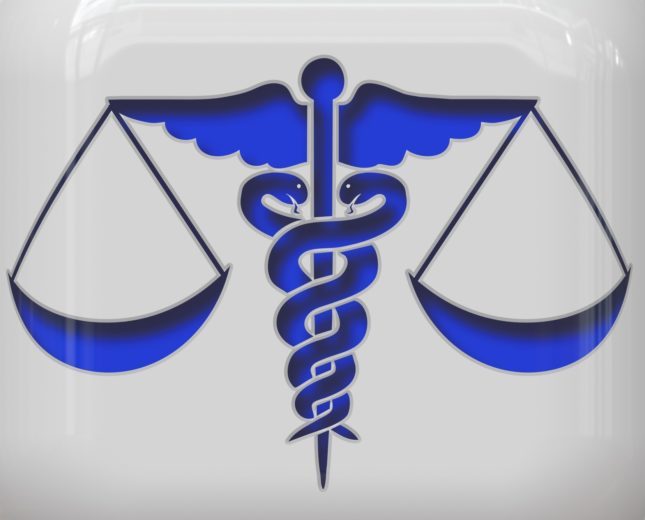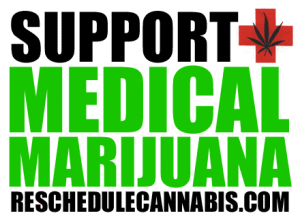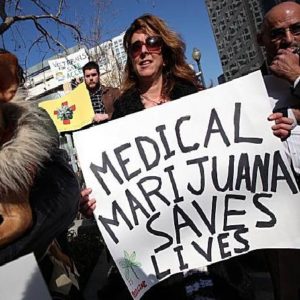Medical Cannabis
True Levy interviews Morgan Levy, MD
True: I am here today with Dr. Morgan Levy who is an expert on the interface between complementary and mainstream medicine. Cannabis is a pharmacologically active plant that rides the fence between between the two.
True: Dr. Levy, is cannabis really a medicine or do people just want to get high?
Morgan: Yes.
True: You mean it is a medicine and people just want to get high?
Morgan: That’s right. On the question of whether cannabis is a medicine or not, everybody is wrong and everybody is right.
True: What do you mean?
Morgan: Cannabis is in a unique place. It is right smack dab in the middle between complementary and mainstream medicine. It is physiologically active but it comprises about sixty substances that have a wide range of poorly researched physiologic action and every strain has a different combination of active ingredients. It treats a limited number of medical conditions but is not the best treatment for anything. One possible exception is a rare form of childhood epilepsy for which it appears to be the only effective treatment. It can be addictive and has bad health effects if consumed chronically and heavily but none if consumed in moderation. It has psychoactive effects that can sometimes cause fear and paranoia and has long been considered a substance of abuse. Proponents say it treats everything and detractors say it is poison. Do you see what I mean when I say, “Everybody is wrong and everybody is right?”
True: What are some of the things that cannabis does?
Morgan: Different strains do different things. There are strains that treat pain and nausea. There are strains that help you sleep and increase your appetite. One special strain called Charlotte’s Web has almost no THC and seems to be the only effective treatment for Dravet’s syndrome which is a rare and severe form of childhood epilepsy. There are strains that lower intraocular pressure and fasting insulin levels. There are strains that improve carbohydrate metabolism. There are strains that reduce muscle spasticity. There are some studies that suggest a possible role in killing certain tumor cells. There are even some studies that suggest a role in the treatment of Alzheimer disease and some inflammatory conditions.
True: What does it not do?
Morgan: It doesn’t treat alcoholism, amyloidosis, anorexia, ADHD, autism, or Crohn’s disease. It does not kill bacteria, heal bones, re-grow myelin in multiple sclerosis, or cure genetic or congenital abnormalities. It does not treat the vast majority of the conditions it is claimed to be effective for except in a complementary way as a placebo.
True: Is there any medical condition that it might make worse?
Morgan: Yes, if you have a psychotic illness such as schizophrenia or bipolar disorder your condition can certainly be exacerbated by cannabis. You may even have a brief psychotic episode requiring psychiatric hospitalization. In rare cases a bad trip might result in self injury or death. If you have a severe anxiety condition like obsessive-compulsive disorder or panic attacks you would be in danger of the cannabis causing an acute and severe anxiety event. PTSD and other anxiety conditions may go both ways as low amounts of the correct strain may reduce anxiety and high amounts of the wrong strain my exacerbate anxiety.
True: What is your overall opinion of the use of cannabis for medical conditions?
Morgan: Overall, I think that most of the things that cannabis can do such as pain management, reduction in nausea, reduction in muscle spasticity, lowering of intraocular pressure and lowering of fasting insulin levels can be done better by other drugs. You would need to have a therapeutic level of cannabis twenty four hours per day to effectively treat these things. If you did that you would be vulnerable to the bad health effects of chronic heavy cannabis use. You would also have problems being sure that the particular strain you are getting is what you think it is. Potency is always an estimate and duration of action can be unpredictable.
True: So, don’t use cannabis medicinally?
Morgan: No, I don’t blame these kids with Dravet syndrome at all and I fully support research efforts to find other similar conditions that cannabis can treat. I don’t blame an anxious person who wants a mild anti-anxiety effect as long as they are educated about dosing and strain selection. I don’t blame someone who is sleep deprived wanting to get some help sleeping once in a while. There are strains that perk you up and make you more alert with minimal impairment in your thinking and I can certainly see someone taking advantage of that therapeutically from time to time. I want to emphasize that these comments are for occasional moderate cannabis consumption. Long term heavy use is not recommended.
True: Is that all you would suggest it be used for from a medical standpoint?
Morgan: Actually, we really don’t know. We don’t even know which component or combination of components treats Dravet syndrome and why or how. Cannabis has been illegal for so long that researchers have not been able to do the appropriate trials to see what its different components actually do.
True: Is there research going on now?
Morgan: Yes, especially since Dravet syndrome was treated successfully. Most people support this research and I am sure it will be a fertile area for some time to come. We could get some good drugs out of it but probably not to the overwhelming extent that proponents of cannabis would think.
True: What do you predict will be the future of medical cannabis?
Morgan: I can tell you that if you have a wart on your big toe and you smoke some cannabis you will feel really good. he..he…
I think that cannabis is here to stay and people will be using it for medical purposes. I have been talking about the reality of the physiologic effects of cannabis. It will also be used as a complementary medicine which means people will use it successfully to treat the things that we know complementary medicines treat which is nausea, pain, psycho-somatic illness, depression and anxiety. We also know that people will use it inappropriately to treat everything under the sun. Just because cannabis has real physiologic effect does not mean that you can’t still get some mighty fine placebo effect as well. In fact, due to its method of consumption cannabis can be a very potent placebo.
True: Would you ever use cannabis to treat anything?
Morgan: I have MS and I may occasionally consume marijuana recreationally but I would not want to consume it on a regular basis. My cognitive function is very important to me. I might think differently if I had severe spasticity that was unresponsive to other treatments. Studies say that cannabis is not better for spasticity than standard medicines but there are Videos on You Tube that say different. Sativex is a THC/CBD combo medication that will likely be FDA approved in the near future and has demonstrated efficacy in the treatment of spasticity in MS. However, baclofen, valium and botox will continue to be first line treatments.
MS patients have cognitive problems that can be made worse with cannabis. This has been confirmed in several placebo controlled studies. If the high CBD form of cannabis or some other single component of cannabis that has been made into pill form turns out to be helpful for sleep and/or spasms without cognitive effects I would be very inclined to use it more often. Or, maybe there is a specific named strain of cannabis that you can buy at a dispensary that is low in cognitive impairment and high in sleep induction and spasm reduction that I can use in moderation but maybe I am being overly hopeful.
Of course, you still do not want to consume cannabis in excess due to the deleterious health consequences that would entail.
I am open to learning more and as I do I will update this website.
True: What about the serious stuff like cancer and Alzheimer?
Morgan: Hey, I think MS is serious!
No, I know what you mean. I can’t help but feel that this is wishful thinking. I know that there are basic science researchers who consume cannabis themselves and have been unduly influenced by the pro-cannabis media attention. Researchers allow bias to get in the way all the time. In addition, there are political organizations that make stuff up in order to influence legislation.
If it does turn out that a cancer drug or two comes out of this research I think that would be great. The state of the research right now in regards to cancer is that in vitro cancer cells appear to have responded to some constituents of cannabis but no cancer in a living human has been successfully treated with cannabis alone.
Since cannabis has been legally available in Colorado many people have listened to the wild claims in the media and have disregarded advice from their physicians. They have come here for cannabis treatment for serious conditions like cancer. This is really bad as people will likely die needless deaths as a result.
Sanjay Gupta spoke to one mother who believed that mainstream medicine could not treat her son’s leukemia but cannabis could. That is crazy! The success rate for standard leukemia treatment is upwards of ninety-five percent. Why would you want to kill your kid because you think you know better than the doctors?
In regards to epilepsy, many moms are coming to Colorado with kids that have all kinds of seizure disorders. Dravet’s syndrome and a very small number of other extremely rare seizure disorders are the only forms of epilepsy that we think may have a chance of responding to cannabis. Since Sanjay Gupta did his very reasonable piece on Dravet’s syndrome lots of people have made tons of other claims that are not so reasonable. People do not realize the harm they do when they make false medical claims. As a doctor I have seen the world of medical research first hand and my instruction to everyone is to be patient and let us figure out what works and then trust our judgment when we offer treatment.
In conclusion, cannabis is a poorly researched group of sixty or so pharmacologically active constituents. It treats a limited number of conditions. Dravet’s syndrome seems to be the only thing it would be a first line treatment for. Long term heavy use can have detrimental health effects. Cannabis is a good placebo treatment and can treat all the things that a totally inert placebo can treat such as pain, nausea, and psychosomatic illness. In the future we may find that it treats specific forms of cancer or dementia or immune related illness but it is unlikely to be found to be the panacea that proponents claim it is.
The best advice I can give is to use cannabis in moderation and do not substitute it for seeing an MD or DO. Also, if you have a moderately serious medical condition please use cannabis in addition to, and not instead, of standard treatment.
![]()
Dr. Levy does speaking engagements to both professional and non-professional groups on a sliding scale. Read his bio and contact him at: Morgan L. Levy, MD
Register to receive notification of new content.




